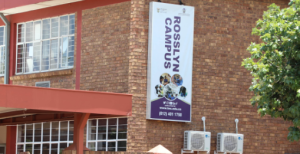The Essentials
Type of Institution: College
Fees per Term/Semester:
Address: 257 Beyers Naude Drive Cresta, Johannesburg, South Africa.
Phone Number: +27 (0) 79 887 8638
Number of students: 10 000+
Website: https://sabusinessschool.com/
Email: info@sabusinessschool.com
Table Of Contents
- Overview
- Contact Details
- Address
- Location
- School Fees
- Courses & Programs
- Vacancies and Entry Requirements
- Logo
- Notable Alumni
- Pros and Cons
- Author’s Review
Overview
SA Business School is a South African institution specializing in short courses, workshops, and customized training solutions for individuals and organizations. It emphasizes practical skills and knowledge that meet the demands of modern business environments. Its programs cater to professionals at various career stages, from entry-level employees to senior executives.
Accreditation and Quality Assurance
SA Business School is registered and accredited with relevant educational bodies in South Africa, ensuring that its programs meet high-quality standards.
Collaborations with professional organizations and accrediting bodies help maintain its reputation.
Focus Areas
Leadership and Management
Business Administration
Financial Management
Human Resources
Marketing and Sales
Project Management
Flexible Learning
The school offers both online and in-person learning options.
Self-paced courses and scheduled workshops accommodate working professionals.
Corporate Training Solutions
Tailored programs designed to meet specific organizational needs.
Team-building activities and leadership workshops aimed at improving workplace efficiency and collaboration.
Programs Offered
Short Courses: Designed to provide quick, intensive training on specific topics such as financial analysis, strategic planning, and team management.
Workshops: Interactive sessions that focus on real-world business challenges and case studies.
Certificate Programs: Longer-term courses that combine theoretical knowledge with practical application, often culminating in a recognized certification.
Custom Programs: Bespoke solutions for companies seeking targeted skills development for their employees.
Learning Approach
SA Business School adopts a practical, hands-on approach to learning:
Case Studies: Real-world examples to help learners apply theoretical concepts.
Experiential Learning: Role-playing, simulations, and group exercises are common.
Expert Facilitators: Experienced professionals with industry expertise lead the programs.
Networking Opportunities: Participants engage with peers from various industries, fostering professional connections.
Target Audience
Aspiring managers and executives.
Professionals looking to upskill or reskill.
Organizations seeking to improve team performance.
Entrepreneurs aiming to enhance their business acumen.
Facilities and Resources
State-of-the-art campuses with modern classrooms and meeting spaces.
Online learning platforms featuring user-friendly interfaces, downloadable materials, and live webinars.
Access to a robust library of business and management resources.
Reputation
SA Business School is known for:
A strong emphasis on ethical leadership and sustainable business practices.
Programs that are aligned with global trends and local business needs.
Testimonials from alumni praising its practical curriculum and professional development focus.
SA Business School Contact Details
You can contact SA Business School via their landline, email or you can visit their website for further contact details.
Phone Number: +27 (0) 79 887 8638
Website: https://sabusinessschool.com/
Email: info@sabusinessschool.com
SA Business School Address
257 Beyers Naude Drive Cresta, Johannesburg, South Africa.
SA Business School Location
SA Business School is situated in the suburb of Cresta on Beyers Naude Drive under the city of Johannesburg in the Gauteng province of South Africa.
SA Business School Fees
Please contact SA Business School via landline, email or visit them physically to receive the latest and correct current fees structure as it is not listed on their official website.
SA Business School Courses & Programs
SA Business School offers a variety of courses and programs aimed at enhancing leadership, management, and technical skills. Key areas of study include:
Leadership Development Courses
Graduate Development Program
New Manager Development Program
Middle Manager Development Program
Executive Development Program
Leadership Courses
Managing Performance
Giving and Receiving Feedback
Key Accounts Management
Building Resilience
Managing Change
Leading Teams
HR (Human Resources) Courses
Wage Negotiation and Strategy
The Law of Dismissal
Dealing with Poor Performance
Chairperson Training
Sales Courses
New Business Made Simple Workshop
How to Get Your Price Workshop
Telesales Made Simple Workshop
These programs are designed for professionals at different career stages and focus on practical, applicable skills. Courses are often tailored to align with organizational needs, making them relevant for current business challenges.
SA Business School Vacancies and Entry Requirements
SA Business School offers a range of programs and learnerships tailored to meet the needs of businesses and individuals. These include courses in business administration, leadership development, contact center operations, sales performance, and information technology.
Vacancies
The school frequently provides opportunities for individuals to join its learnership programs or skills development initiatives, particularly under the frameworks of the South African National Qualifications Framework (NQF). Examples of available programs include:
Business Administration Services: Levels NQF 2-6, with credits ranging from 120-138.
Information Technology: End User Computing (NQF 3) and Systems Support (NQF 5), offering hands-on skills.
Generic Management: For leadership development at NQF levels 4 and 5.
Contact Center Operations: Covering various levels of expertise, including NQF 2 and 4.
These programs are designed to develop skills while adhering to corporate training needs, enabling individuals to enhance employability or progress within their careers.
Entry Requirements
Admission to these programs generally depends on the NQF level of the course:
Foundational Programs (NQF 2-4): Often require a Grade 10 or equivalent qualification.
Intermediate and Advanced Levels (NQF 5-6): May require a Grade 12 certificate, relevant work experience, or prior qualification in a related field.
Learners must also meet specific SETA (Sector Education and Training Authority) requirements if applicable.
Key Features
The programs include:
Flexible delivery modes (online, on-site, or at SA Business School’s facilities).
Practical workshops and expert-led training.
Opportunities for academic support and tax rebates for sponsored training.
SA Business School Logo
Below is the logo of SA Business School with excellent quality and it is available to download in PNG (transparent file) JPEG and PDF.
SA Business School Logo
Pros and Cons
Pros
Accredited Programs: Fully accredited by relevant authorities such as SETA, ensuring the quality and recognition of its programs
Diverse Course Offerings: Wide range of programs including business administration, IT, sales, and leadership development, catering to various industries and career levels
Flexible Learning Options: Courses can be attended online, at work premises, or at SA Business School facilities, accommodating different schedules and learning preferences
Corporate Alignment: Customizable content tailored to organizational needs, enhancing practical relevance and workplace application
Support for Skills Development and B-BBEE Compliance: Programs align with South Africa’s B-BBEE (Broad-Based Black Economic Empowerment) goals, enabling companies to upskill their workforce and meet compliance standards
Practical Training Approach: Emphasis on real-world application through workshops and industry-expert trainers
Financial Incentives: Businesses can benefit from tax rebates and government grants when participating in or sponsoring learnership programs
Cons
Limited Standalone Academic Programs: Focuses heavily on learnerships and corporate training; may not appeal to individuals seeking traditional academic degrees.
Entry-Level Barriers for Some Programs: Certain programs, especially at higher NQF levels, require prior qualifications or work experience, which could limit accessibility
Corporate-Centric Approach: While beneficial for companies, individual learners not linked to a corporate sponsor may find fewer opportunities for funding or support.
Focus on South African Frameworks: Programs are designed to meet local regulatory and corporate needs, which may not align with international standards or mobility.
Dependent on Organizational Participation: Many offerings are customized for businesses, potentially limiting access to self-sponsored learners.
Author's Review
SA Business School stands out as a significant player in South Africa’s corporate training and skills development landscape. The institution offers a wide range of accredited programs and learnerships tailored to align with industry needs and national frameworks like B-BBEE compliance.
Its commitment to flexibility through online, on-site, and in-facility training options ensures accessibility for a diverse range of learners. The emphasis on practical, industry-relevant skills delivered by expert trainers further enhances its appeal for both corporate clients and individual professionals.
However, its strong focus on corporate and organizational partnerships may limit opportunities for self-sponsored learners or those seeking traditional academic qualifications. While the programs meet high local standards, individuals with international aspirations should assess their compatibility with global frameworks.
Overall, SA Business School is ideal for those looking to develop practical skills, improve workplace competency, and align with South African corporate and compliance standards. It is particularly beneficial for businesses aiming to empower their workforce and meet regulatory goals.
Prospective students and corporate clients should carefully evaluate the school’s offerings to ensure they align with their personal or organizational objectives.



